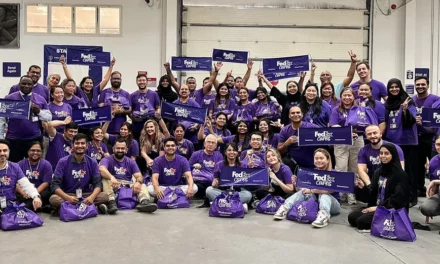
More than half of KSA employees value work-life balance and career progression as top priorities.

New Report from BCG and The Network reveals 30% of candidates in Saudi Arabia would refuse a good offer if they had a negative experience during recruitment
Riyadh, KSA – March 21, 2023— Despite a possible economic slowdown experienced globally, the Kingdom of Saudi Arabia (KSA) is experiencing a significant boom. With projections set at an all-time high, and unemployment rates remaining low, today, most job candidates are aware of their attractiveness to employers. Compared to 75% globally, 72% of employees in the KSA are approached multiple times per year about new job opportunities—and 39% of those are approached every month. In addition, 69% of job seekers feel they are in a strong negotiating position when looking for a job, a figure that runs 5% higher to the global average, where only 14% feel that employers hold the reins in job offer negotiations, next to 18% in KSA. Confidence is highest among those who work in digital, media and legal and lowest among workers in healthcare, service and hospitality.
These are among the findings of a new study released today by Boston Consulting Group (BCG) and The Network, a global alliance of recruitment websites. Titled “What Job Seekers Wish Employers Knew,” the study is based on a survey dedicated to exploring job seekers’ recruitment preferences providing a comprehensive analysis of major international markets, including Saudi Arabia.
The survey reveals that the most coveted candidates are those working in digital, science and research, and media followed closely by those in education, administration and IT. Overall, engineers reported to receiving relatively less offers.
“It’s not easy to win over top talent, especially in high-demand fields such as digital, IT and tech. A strong offer is not enough. 30% of candidates in Saudi Arabia would refuse a good offer if they had a negative experience during recruitment. Most talents imagine their ideal career in a stable job with good work-life balance and time for family, friends and hobbies. However, a main deal breaker when looking for a job is still financial compensation,” said Dr. Christopher Daniel, Managing Director and Senior Partner, BCG Middle East.
What Candidates Want
Most respondents (66%) to the survey said that they desire, above all, a stable job with a good work-life balance. This preference is dominant across job roles, industry, and age groups. Career Progress at a good company comes second (57%), and working on exciting products, topics, and technologies ranks third (23%). Hybrid work is still popular, with 28% of respondents favoring that model—but that result represents an unexpected decline in preference from BCG’s autumn 2020 survey, in which 36% of KSA respondents said they would work remotely for an employer with no physical presence in their country. Today, the majority of respondents in KSA (63%) cited full-time office presence as their work model of preference.
Deal Breakers
People may dream of a steady job with a good work-life balance for the long term, but across Saudi Arabia, candidates who are weighing a concrete job offer make the appreciation for their work the highest priority, and they identify inadequate salaries and bonuses as one of the biggest deal breakers, at par with collaborative working styles, and the amount of paid time off. Next in line are family support, job security, company values, challenging work assignments, relationship with the superior, additional benefits.
The survey also looked at respondents by age group. Collaborative working style and work-life balance are generally the two top priorities regardless of cohort, but deal breakers change significantly with age:
- Members of the young generation of workers care deeply about the relationship with their superior, and meaningful work.
- Workers who are 30 to 50 years old prioritize appreciation for their work, and retirement and insurance benefits.
- Among respondents age above 50 to 60, family support solutions and amount of paid time off rank relatively high.
Myth Busters
The survey’s findings include the revelation that some myths about recruiting are just that—myths. For instance, 30% of respondents would refuse an otherwise attractive job offer if they either experienced an unprofessional selection processor had a strong negative experience during the recruiting stage, and 53% said that a smooth, timely process is the number one way for an employer to stand out during recruitment. Both of these results debunk the myth that if the offer is attractive, the recruitment process doesn’t matter.











































